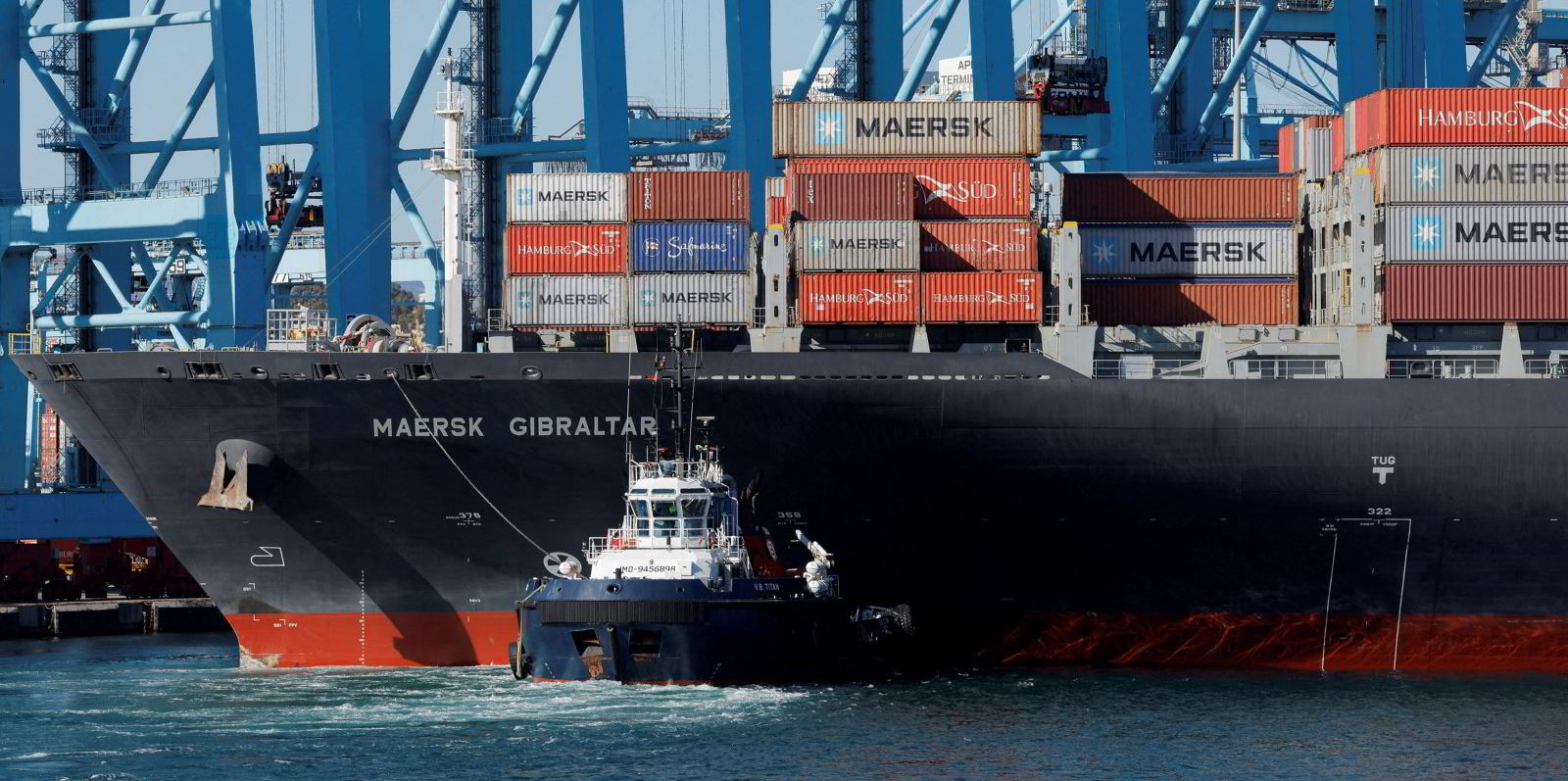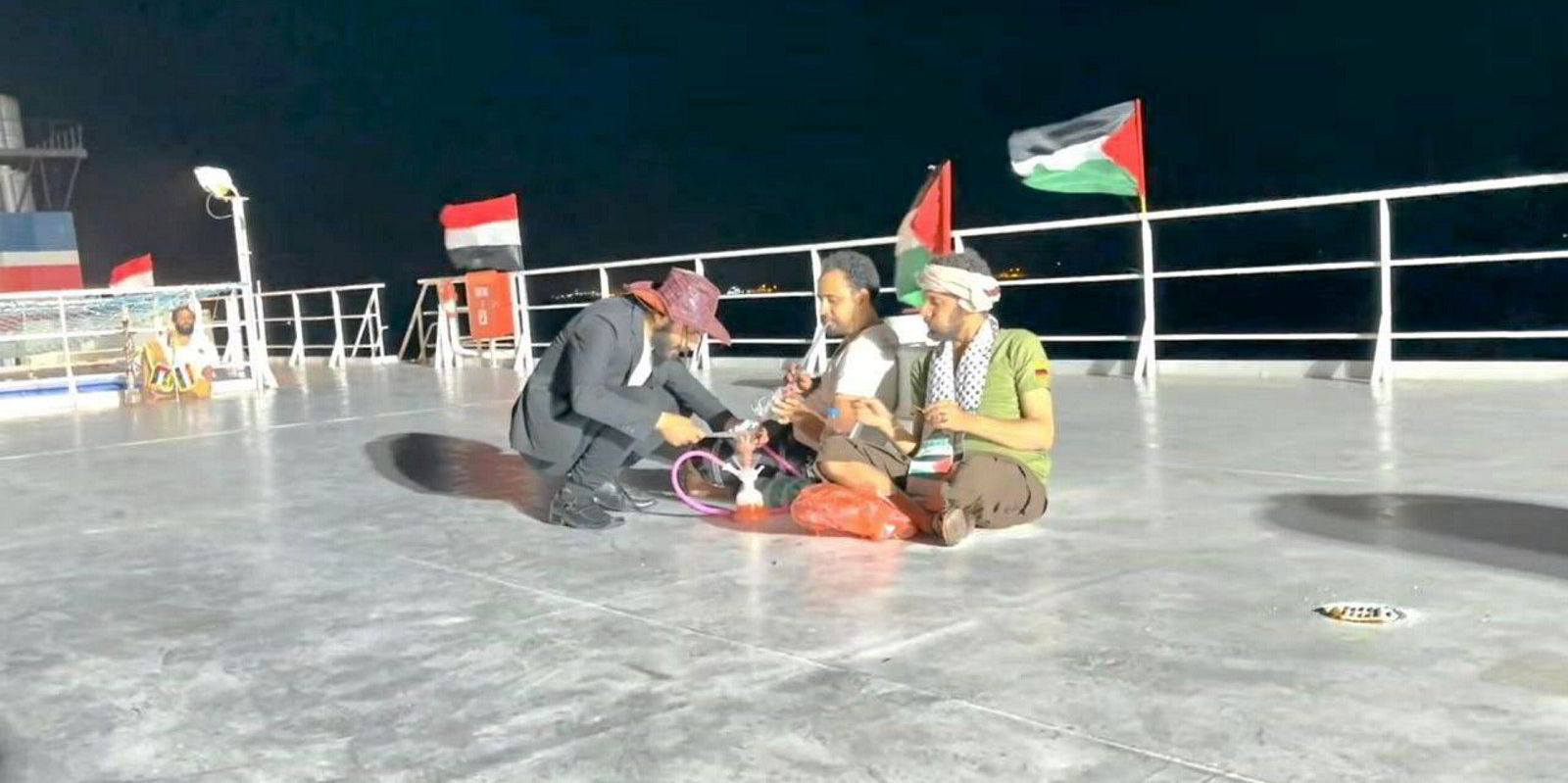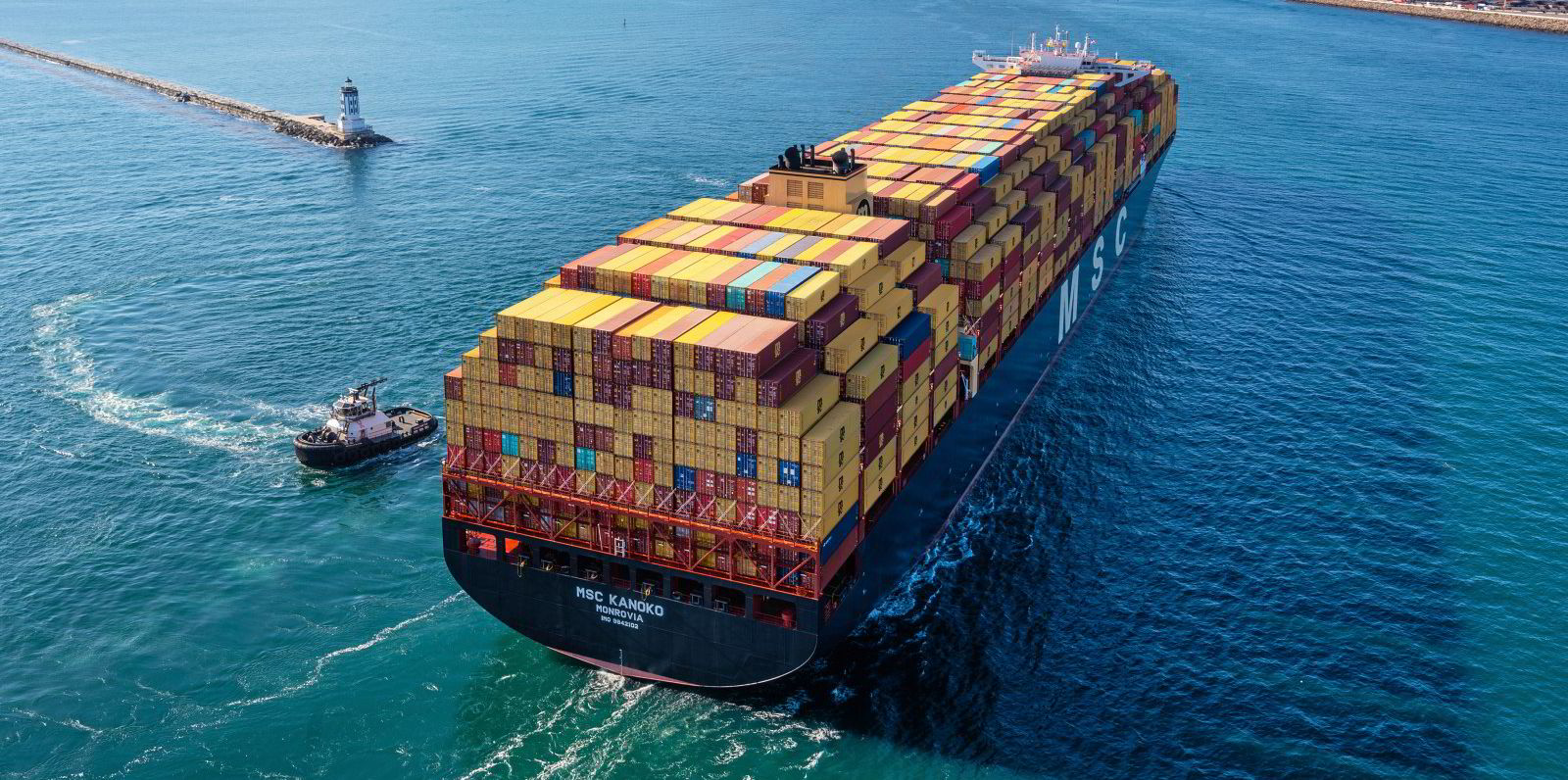The top defence officials of the US and UK agreed that the growing threat to international shipping in the Red Sea “must be addressed” as vessel tracking data showed vessels U-turning in the region.
Major General Pat Ryder, press secretary for the Pentagon, said on Friday that US defence secretary Lloyd Austin spoke with Grant Shapps, his UK counterpart, by phone.
The two officials discussed the threat that the recent attacks by Houthis, which Ryder described as illegal, pose to civilians and global shipping.
“Both secretaries highlighted the importance of the Red Sea as a vital artery for global commerce,” the US Defense Department spokesman said.
“They both noted that the scale and frequency of these attacks constitute a significant international problem that must be addressed.”
As TradeWinds reported earlier in the day, Houthi militants have fired on several ships this week, with vessels in the fleets of container shipping giants AP Moller-Maersk, Hapag-Lloyd and MSC Mediterranean Shipping Company all coming under fire.
Maersk and Hapag-Lloyd have announced a pause in transits through Bab al-Mandab Strait, a key shipping choke point that links the Gulf of Aden to the Red Sea.
Later in the day, container ships could be seen changing course to avoid the troubled region.
The 8,110-teu Maersk Tikung and 6,200-teu Maersk Chicago (both built 2007) were heading westbound in the Gulf of Aden before the Maersk-operated ships took U-turns and headed east, according to tracking data from VesselsValue.
The US-flag Maersk Chicago was still showing the Suez Canal as its intended destination even though it was now heading in the opposite direction.
Taking a pause
Devin Doell, Maersk’s spokesman for North America, said the company’s statement earlier Friday that it is pausing vessels in the region still stands.
“The vessels have been instructed to pause,” he said after TradeWinds asked whether the vessels were taking the longer route around Cape Horn. “They have not been instructed to go around the Cape.”
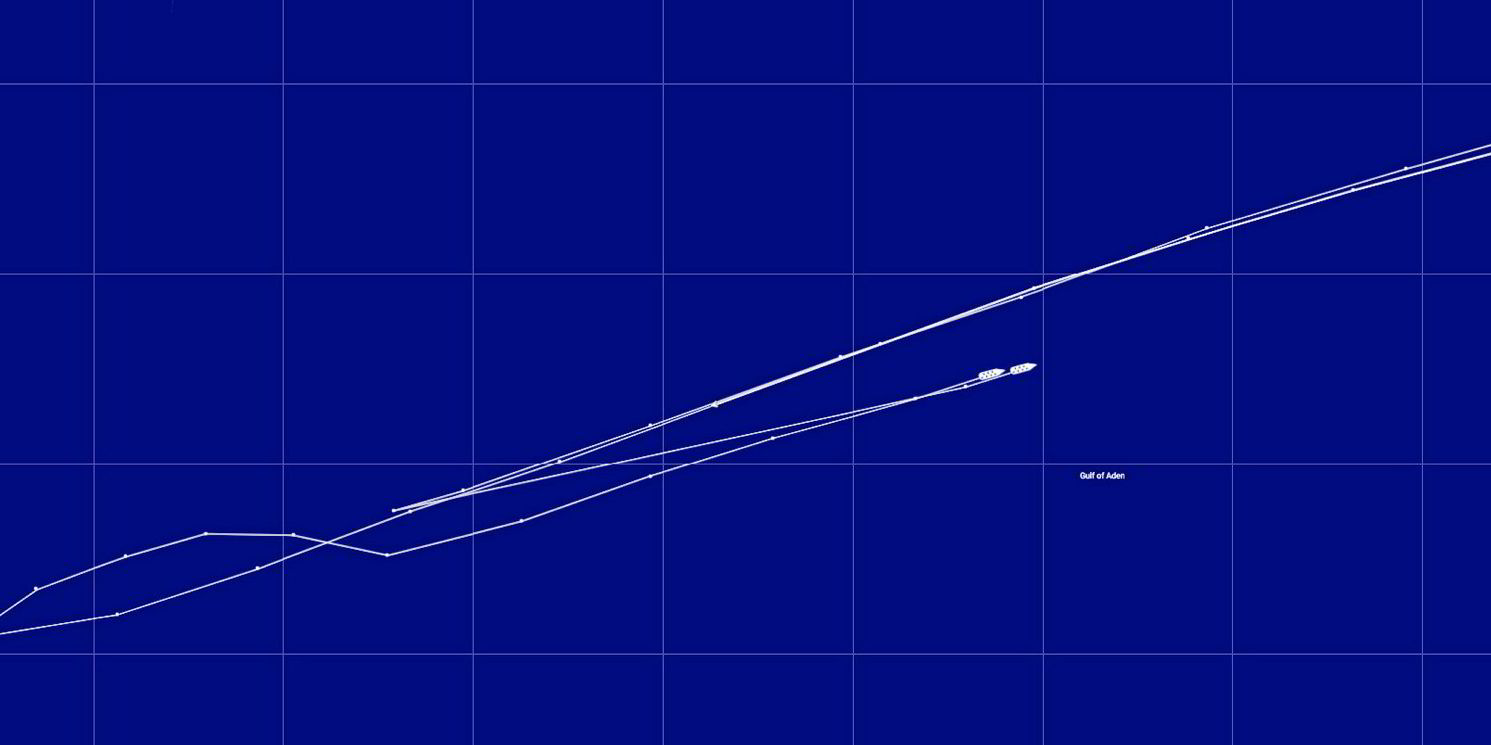
He said Maersk is monitoring the situation and will provide more information on next steps in the days to come.
Hapag-Lloyd’s 8,600-teu Colombo Express (built 2005) was in the Arabian Sea sailing west when it made a similar U-turn, with the ship now appearing to head in the direction of the Omani port of Salalah.
In the Red Sea, the company’s 8,600-teu Tsingtao Express (built 2007) was southbound before reversing course. It is now anchored, the vessel-tracking data shows.
MSC’s 8,533-teu MSC Tokyo (built 2006) departed King Abdullah port in Saudia Arabia on Friday and was sailing southbound in the Red Sea with the United Arab Emirates as its predicted destination before carrying out a U-turn.
The Swiss liner giant’s 6,750-teu MSC Luisa (built 2002) was showing a similar course change, according to the VesselsValue data.
The 6,200-teu Maersk Kensington (built 2007), which had been in the Red Sea heading toward the Bab al-Mandab Strait, has halted off the border between Eritrea and Sudan.
A ship in the fleet of French liner operator CMA CGM also took a similar step on Friday. The 23,100-teu CMA CGM Rivoli (built 2021) was travelling southbound in the Red Sea earlier Friday with Singapore as its predicted destination before reversing course, according to VesselsValue data.
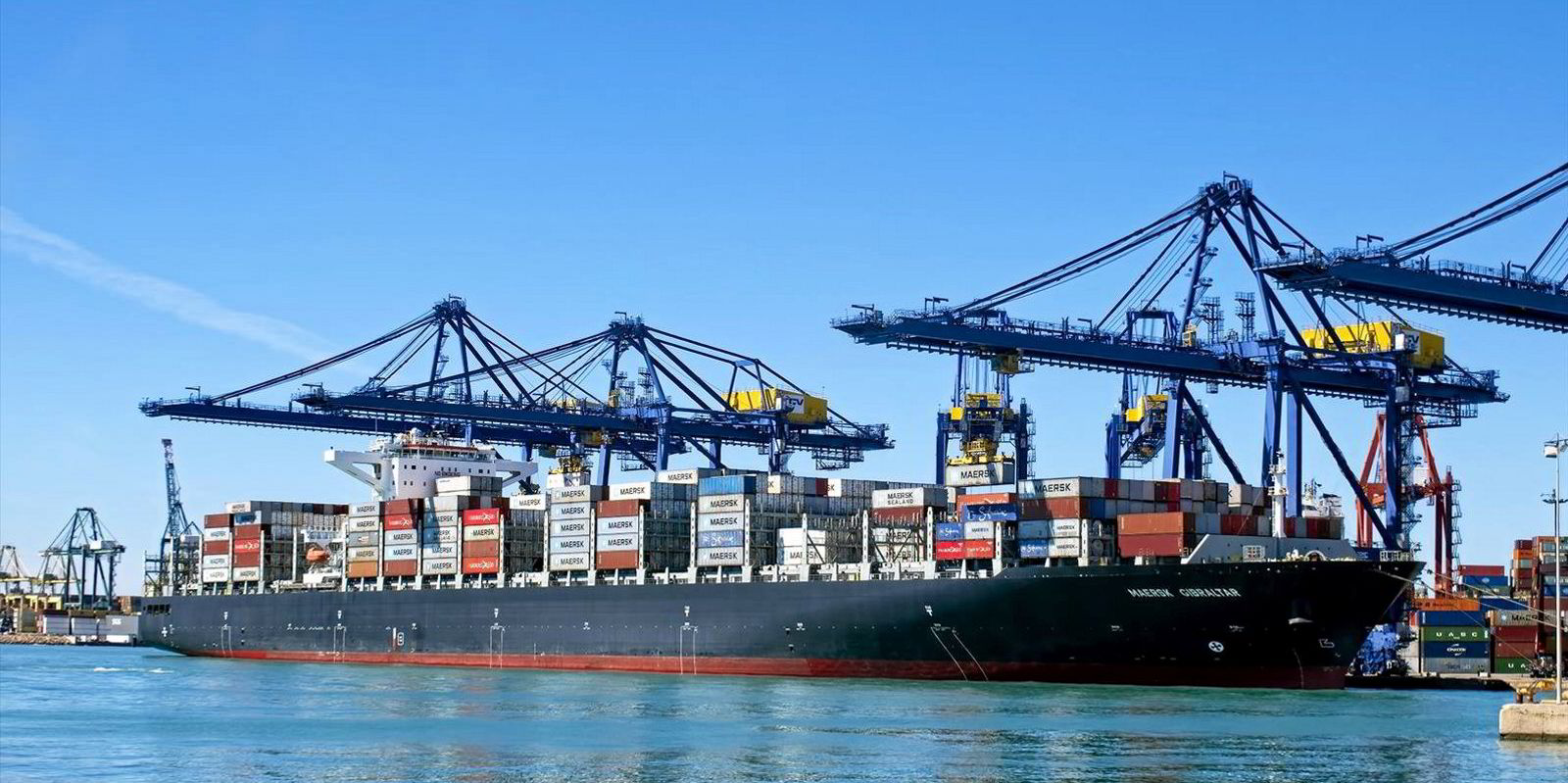
After the latest attacks on container ships, the World Shipping Council called for decisive action to protect seafarers in the region.
The group, which represents the interests of international liner shipping companies, said it is concerned by the “escalating security crisis” in the Red Sea region.
”The disturbing surge of attacks on vessels poses an imminent threat to the safety and lives of the seafarers navigating these waters,” the council said.
“The right of freedom of navigation stands as a fundamental right under international law, and must be safeguarded.”
The group wants the global community to protect both seafarers and freedom of navigation, which appeared to echo the International Chamber of Shipping’s call to send more warships to the region.
“The time for resolute international engagement is now,” the council said.

